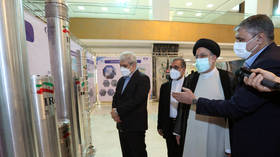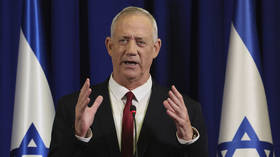Iran outlines its nuclear capabilities

Iran has the technical expertise needed to produce a nuclear weapon but will not do so, the head of the country’s Atomic Energy Organization Mohammad Eslami said on Monday. The remark reiterated what a senior aide to Iran’s supreme leader told journalists last month.
Iran “has the technical ability to build an atomic bomb, but such a program is not on the agenda,” Eslami said in an interview with Fars News on Monday.
The statement confirmed a remark made in July by Kamal Kharrazi, an adviser to Ayatollah Ali Khamenei, who told Al Jazeera that Tehran could “easily” produce weapons-grade enriched uranium and other elements of a nuclear device, if it ever chose to do so. Israeli Defense Minister Benny Gantz responded to Kharrazi’s remarks by suggesting that his country could launch an attack against its regional nemesis.
In the interview, Eslami blasted Israel for what he described as false allegations that Iran wanted to become a nuclear-armed nation. The Israeli government has been leveling such accusations for years, the Iranian official said, adding that they showed the hypocrisy of the rival nation.
Israel is widely presumed to have a sophisticated arsenal of nuclear weapons, but neither confirms nor denies it officially.
Tehran has long stated that possessing nuclear weapons was incompatible with the principles of Islam. In 2015, it agreed to impose restrictions on its nuclear industry in exchange for the lifting of economic sanctions and other incentives.
The multilateral deal, known as the Joint Comprehensive Plan of Action (JCPOA), was torpedoed by the US under then-President Donald Trump, which unilaterally pulled out in 2018. As a tit-for-tat measure, Iran has been gradually reducing its commitments under the accord, such as the level of enriched uranium it produces. US President Joe Biden’s attempts to salvage the deal have so far been fruitless.













